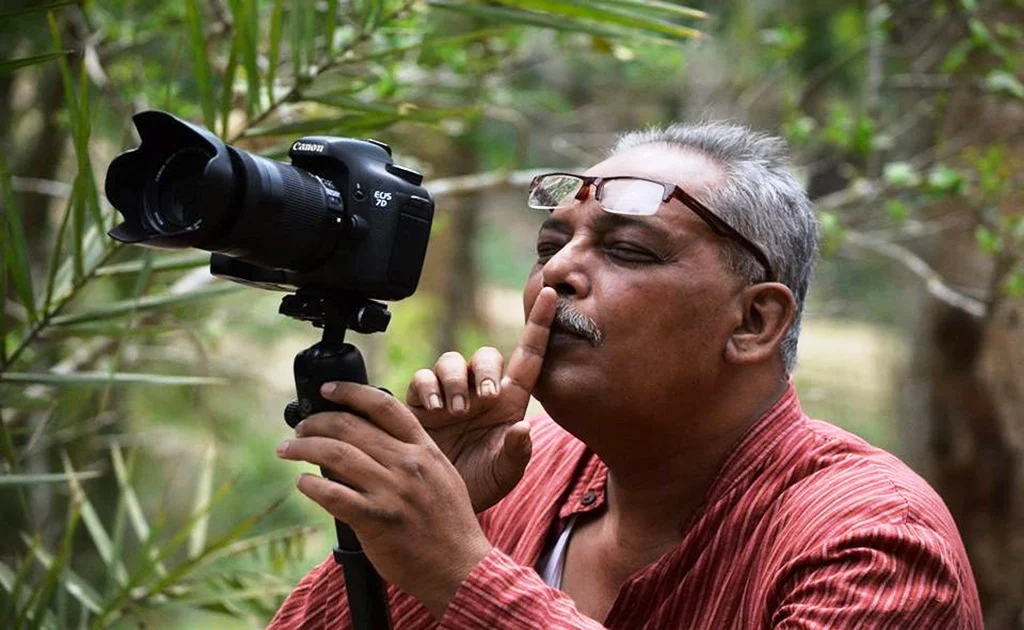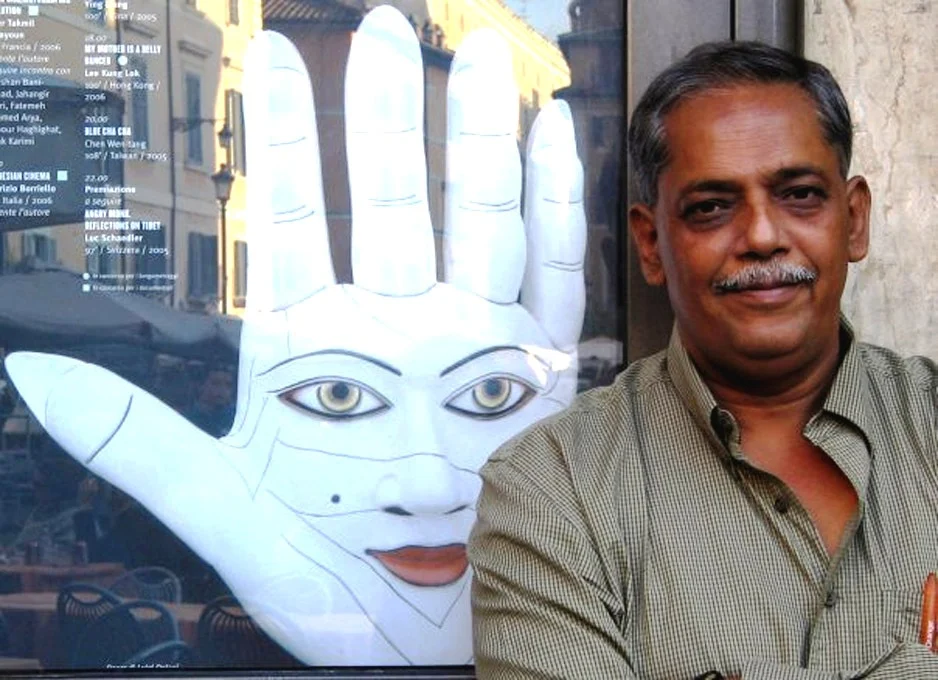The passing of one of the country’s most influential documentary filmmaker and critic Altaf Mazid, in the morning of April 13, on the day of Goru Bihu, has come as a huge shock and a painful loss to everyone in the Assamese movie industry, as well as society at large. He had left an incredible imprint in our memories not only as a wonderful creative talent but also as an exceptional individual with an inquisitive mind.
Mazid is perhaps one of the few filmmakers from the state whose creativity and talent was recognised in a big way at the national and even international level. The late maestro, born in the Lakhtokia locality of Guwahati, in 1956, did his early schooling from Panbazar’s No1 Primary School. After passing his Class XII exams from Cotton Collegiate High School, Mazid graduated in Civil Engineering from Assam Engineering College. He also completed his Masters in the same subject. He landed a job in the Public Works Department of Assam. But then he was always inclined to anything even remotely associated with culture. He along with some others gave birth to Anweshak, an organization for viewing of the not-so-popular cinema of India that does not figure in the conventional film-society agenda.
Altaf Mazid was strongly drawn to the cinematic vocabulary, after his involvement in the all-important aspects of film criticism and filmmaking. It was cinema that formed the very ground of his life, a great source of inspiration and consolation. He even declined to get promoted to the lucrative position of a Superintendent Engineer due to his intense involvement with it. He was uncompromising in his dedication and ideals, and that showed in his work as a critic and filmmaker. He continued to work as an Executive Engineer in his Department, and was due to retire in December in the current year.
Altaf Mazid, who carved out a significant reputation as a film critic, was undoubtedly one of the most influential documentary filmmakers to emerge from the state. He has enriched the cultural world with his very expansive and insightful critical write-ups and essays. As a celebrated film critic, he became an indispensable guide to the local film industry and its evolution. In 2004, Mazid by virtue of his creative ability, intense labour and extraordinary resolve, single-handedly restored and reconstructed the first Assamese film ‘Joymoti’ (1935) from the dustbins of history, making it possible for the public, long deprived of seeing this incomparable masterpiece, to view it for the first time, adding a new chapter in the history of not just Assamese but Indian cinema as well. It was indeed a proud moment for everyone associated with the Assamese film industry when ‘Joymoti’ was premiered internationally in the Bollywood and Beyond film festival of Stuttgart in 2006, which was subsequently followed by screenings in Asiaticafilmmediale of Rome (2006), Munich Film festival (2007), Osian Delhi (2008) and IFFI Goa (2014).
He also tried his outmost to promote another forgotten film, considered a milestone in Assamese cinema, the 1976 release ‘Ganga Silonir Pakhi’.
Altaf Mazid, who has made a number of notable documentaries, short films and features in addition to serials-films for Doordarshan, made his first short fiction feature, an experimental venture, entitled ‘Byoktigata Aru Goponio’ (Personal and Confidential) in 1992. His prolific career, which spanned over 24 years, produced some of the most important and socially relevant documentaries and feature films including ‘Jibon’ (1998), ‘Lakhtokiat Golam’ (2001), ‘Our Common Future’ (2002), ‘The Joy Of Giving’ (2004), ‘Las Vegasat’ (2004), ‘Bhal Khabar’ (2005), ‘Crazy On The Rocks’ (2007), ‘Kunir Kutil Dosha’ (2008), ‘Boliya Pitaier Sohoki Sootal’ (2008) and ‘Rahashyar Bitchaku’ (2014). He also co-produced an award-winning Malayalam film ‘Chitrasutram’ in 2010.
As a member of FIPRESCI (Fédération Internationale de la Presse Cinématographique), he has occupied a chair of film critic jury to IFFI (1992), IDFA Amsterdam (1997), YIDFF Japan (2001), MIFF Moscow (2004), Cannes (2006) and Dubai (2012). Also he was a jury to BIFES Bangalore (2014) and IDSFF Kerala (2015) besides being invited to Fajr Film Festival of Tehran as guest critic in 1997. He was a member of selection committee of Indian Panorama (non-fiction) of IFFI (1999), and Assam State Film Awards 2005 (feature).
‘Jibon’ fetched him the Best Director prize in the Seventh Pyongyang Film Festival of Non-Aligned & Developing Countries 2000. In 2008, Mazid achieved a magnificent double, winning two prestigious awards in two diverse categories at the National Film Awards – Golden Lotus for Best Film Critic (shared with R. K. Bidur Singh) and Silver Lotus for Best Anthropological/Ethnographic Film for one of his finest artistic achievements, ‘Boliya Pitaier Sohoki Sootal’. Treading on the cinema verite style, the film relates real events that vividly depict the lives and ethical dilemmas of ordinary people.
Altaf Mazid receiving the National Film Award for Best Film Critic
‘Rahashyar Bitchaku’, Altaf Mazid’s 26-minute long experimental documentary was honoured with the prestigious Golden Conch for Best Documentary at the Mumbai International Film Festival in 2014. ‘Rahasyar Bitchaku’ with its strong imagery and humor gathers a lot of momentum thanks mainly due to Mazid’s inspired direction and imaginative script. Mazid’s films have regularly featured in this highly esteemed festival since the very beginning of his filmmaking journey.
Altaf Mazid’s brilliance lies in his astute, nuanced observations of everyday lives. His films demonstrate his compassionate social conscience and humanity. He has indeed influenced the very nature of filmmaking through his unique creations. Mazid also played a leading role in reviving the archives of the celebrated litterateur, Saurav Kumar Chaliha. ‘Lakhtokiat Golam’ and ‘Bhal Khabar’, his two works on this enigmatic yet astounding storyteller, are quite unique to the genre in their creative expression and visual imagery.
After being in the business for well over two decades, Altaf Mazid finaly gets a retrospective at the 10th Vibgyor International Film Festival held in Thrissur, Kerala in 2015 where five of his films were screened to overwhelming critical and popular appeal.
Altaf Mazid has been a great source of inspiration for upcoming filmmakers and critics in the state. His death has evoked an overwhelming sense of sadness and loss. This exceptional talent with a unique artistic vision will be so greatly missed.
This article is written by Prantik Deka, a columnist and cine journalist.
Tags:
People



